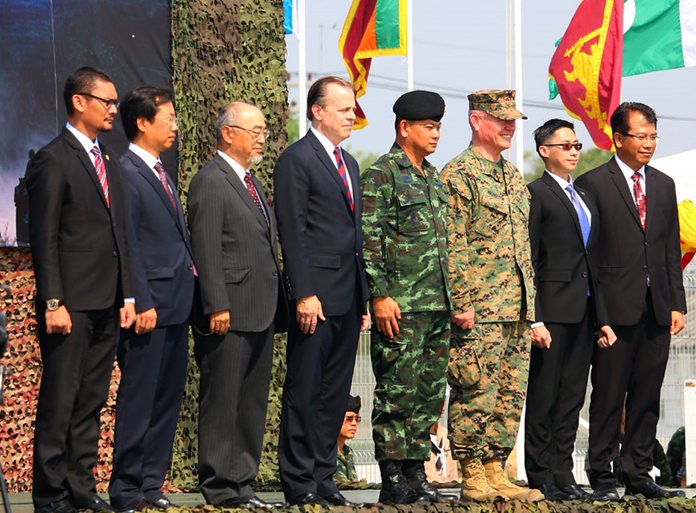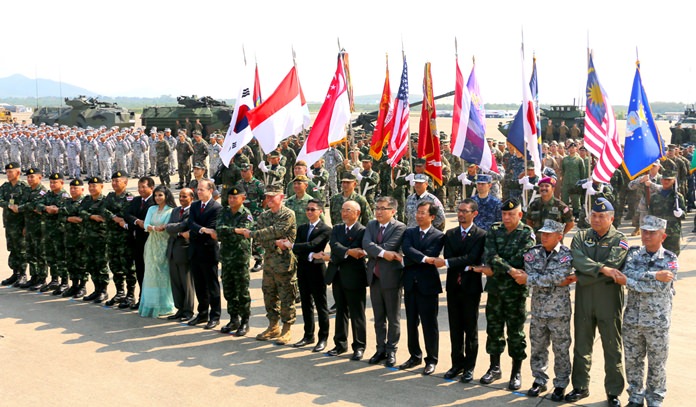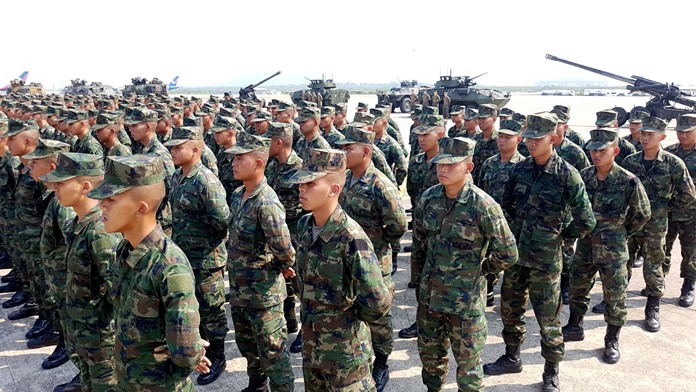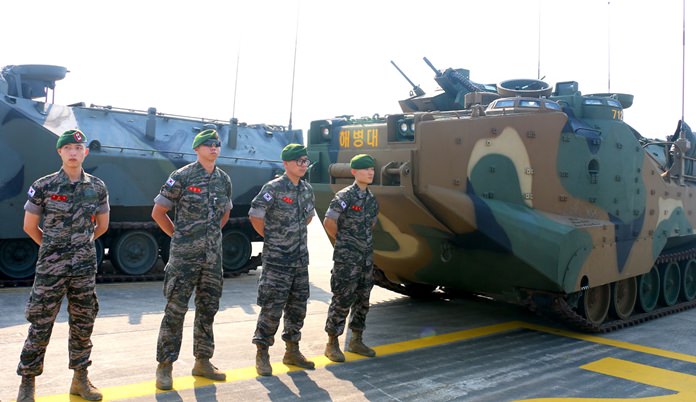
More than double the number of U.S. sailors and marines joined military personnel from Thailand and 28 other countries as Cobra Gold 2018 kicked off in Sattahip.
 Adm. Tarnchaiyan Srisuwan, chief of joint staff for the Royal Thai Armed Forces, and U.S. Ambassador Glynn T. Davies opened the 37th annual military exercise Feb. 13.
Adm. Tarnchaiyan Srisuwan, chief of joint staff for the Royal Thai Armed Forces, and U.S. Ambassador Glynn T. Davies opened the 37th annual military exercise Feb. 13.
The United States this year sent 6,800 servicemen to participate in Cobra Gold, a huge increase from the past three years when Washington, under President Barack Obama, protested Thailand’s 2014 military coup by drastically scaling back what had been America’s largest war games in Asia.
Under President Donald Trump, who has embraced dictators and strongmen from the Philippines to Turkey, Thailand to Egypt, the U.S. not only doubled its force, but stood side-by-side with the Myanmar military, which has been accused of ethnic cleansing in its handling of the Rohingya refugee crisis.
A total of 15,000 troops from 30 countries is participating in this year’s Cobra Gold, with land-based drills taking place in Nakhon Ratchasima and naval drills in Sattahip.
Active participants include Thailand and the U.S., as well as Indonesia, Japan, Malaysia, Singapore and South Korea. They will deploy six warships, 34 amphibious vehicles and 86 aircraft.
The ten observer countries are Brazil, Brunei, Cambodia, Germany, Laos, Myanmar, Pakistan, Sri Lanka, Sweden and Vietnam.
Countries included in the Multinational Planning Augmentation Team are Australia, Bangladesh, Canada, Fiji, France, Mongolia, Nepal, New Zealand, the Philippines and the United Kingdom.
China and India also will join in limited activities.
The exercises are aimed at improving combined responsiveness to crises in the Indo-Asia-Pacific region, and further reinforce decades of partnership, Davies said.
“Also, it will test the interoperability and bilateral capability of the Thai and U.S. militaries to work together across a variety of areas including humanitarian assistance, disaster relief and field training.”









